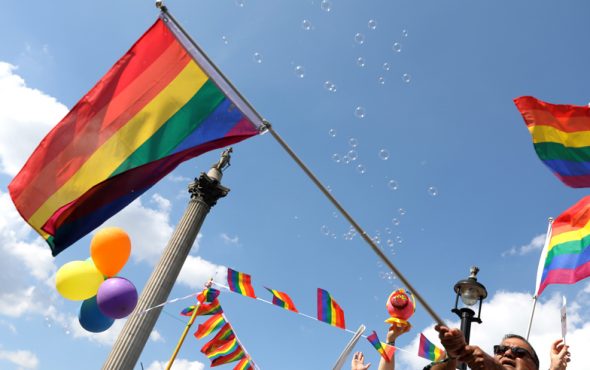
In a win for LGBTQ+ rights, Singapore has announced plans to decriminalise the country’s archaic law that bans men having sex with men.
Since 1938, the Southeast Asian country has enforced the colonial-era law Section 377A – which defined sex between consenting men as “acts of gross indecency”.
Under the dangerous law, if an individual is convicted of having gay sex, they could face up to two years in prison.
However on 21 August, Prime Minister Lee Hsien Loong announced that the harmful legislation would officially be repealed during his speech at National Day Rally.
“Private sexual behaviour between consenting adults does not raise any law and order issue. There is no justification to prosecute people for it nor to make it a crime,” he said.
“This will bring the law into line with current social mores and I hope to provide some relief to gay Singaporeans.”
Even though Loong announced the removal of Section 377A, he also reinforced the country’s conservative stance on inclusive LGBTQ+ initiatives like queer representation in media and marriage equality.
He went on to say that the government would be taking steps to ensure that LGBTQ+ individuals couldn’t fight for same-sex marriage.
“Even as we repeal Section 377A, we will uphold and safeguard the institution of marriage,” he continued.
“We have to amend the Constitution to protect it. And we will do so. This will help us repeal Section 377A in a controlled and careful way.”
Shortly after the prime minister’s speech, 22 LGBTQ+ organisations praised his decision in a joint statement, as reported by The Guardian.
“The repeal of Section 377A, while long overdue, is a significant milestone and a powerful statement that state-sanctioned discrimination has no place in Singapore,” the statement read.
View this post on Instagram
“For everyone who has experienced the kinds of bullying, rejection and harassment enabled by this law, repeal finally enables us to begin the process of healing.
“For those that long for more equal and inclusive Singapore, repeal signifies that change is indeed possible.”
The news of Singapore removing Section 377A comes after years of debate and legal battles.
Earlier this year, the country’s Court of Appeals rejected a proposal from LGBTQ+ activists to overturn the aforementioned legislation.
In the ruling, Chief Justice Sundaresh Menon explained that no one was being deprived of the right to life or personal liberty due to the “unenforceable” nature of the legislation.
Aside from Singapore, other countries in Asia have either removed similar British colonial-era laws or have introduced new LGBTQ+ inclusive legislation.
Back in 2018, India’s supreme court overturned Section 377 of the Indian penal code – which criminalised intercourse “against the order of nature.”
Before the law was removed, LGBTQ+ individuals in the country would face up to 10 years in prison if convicted.
A year later, Taiwan became the first country in Asia to legalise same-sex marriage after Taiwan’s president Tsai Ing-wen and her Democratic Progressive Party voted it into law.
Thailand also approved plans to legalise same-sex civil partnerships in June.



